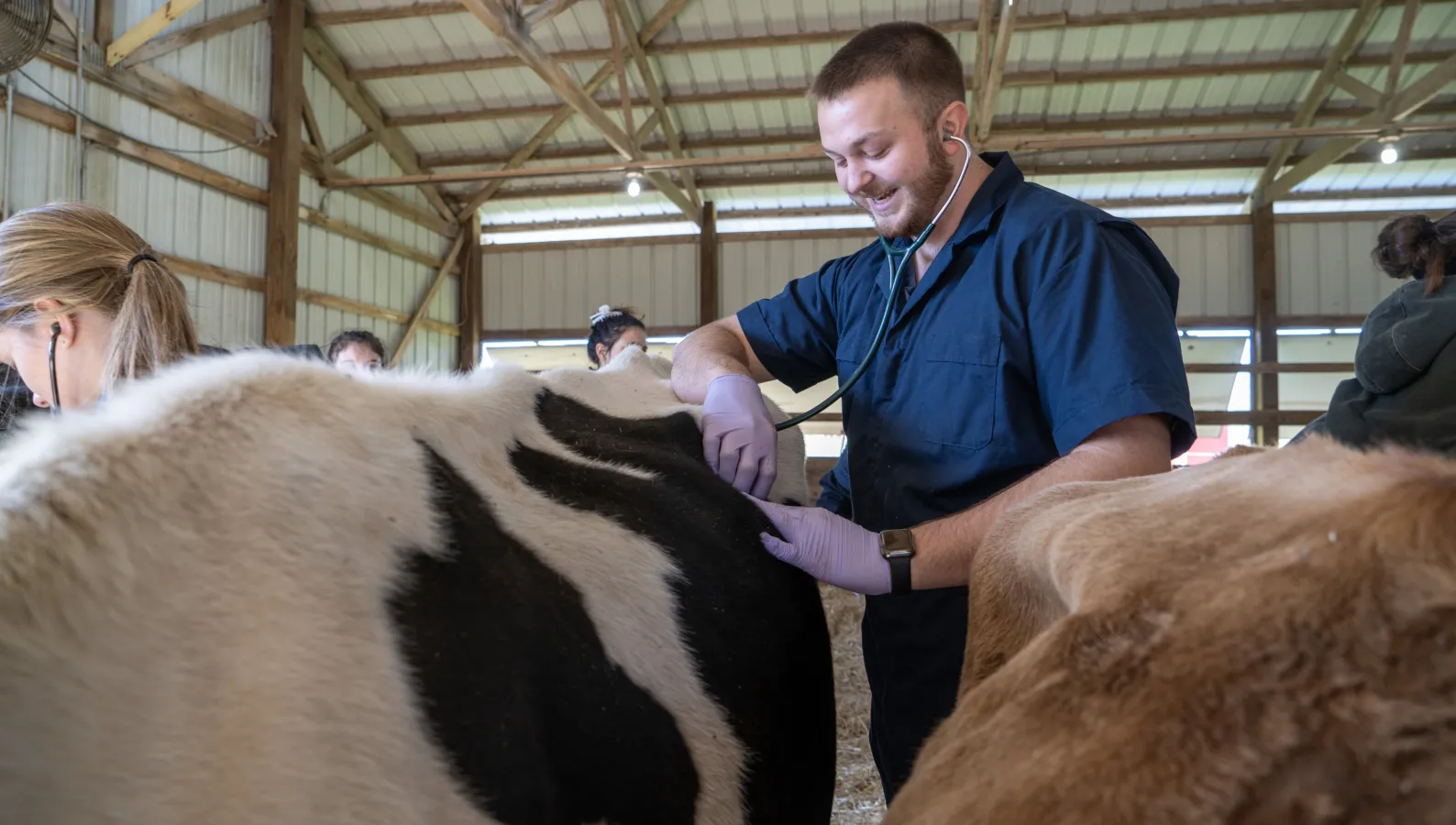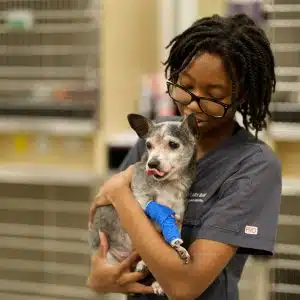Signs your pet needs a Veterinary Cancer Specialist evaluation
Comprehensive Overview to the Providers Offered by a Vet Oncologist
Vet oncology encompasses a wide array of services focused on diagnosing and treating cancer cells in pets. Pet Cancer Surgery. Oncologists use innovative analysis strategies and supply numerous therapy choices tailored to each pet's demands. They additionally focus on encouraging treatment and give beneficial sources for family pet owners. Understanding these solutions is essential for making educated choices. What particular aspects of vet oncology can significantly impact a pet's therapy journey?
Recognizing Veterinary Oncology
Vet oncology is a customized field focused on detecting and dealing with cancer in pets. This self-control encompasses a wide variety of methods, from medical therapies such as chemotherapy and immunotherapy to medical interventions focused on removing growths. Veterinary oncologists are educated to recognize the special manifestations of cancer cells in various varieties, enabling them to customize treatment strategies to individual people.
In addition to standard treatments, vet oncology stresses helpful treatment, which plays a vital role in improving the lifestyle for afflicted pets. This consists of pain administration, dietary support, and palliative care alternatives. Collaboration with family pet proprietors is crucial, as they are important to decision-making concerning their pets' therapy courses. As research developments, vet oncology continues to develop, using brand-new hope and improved outcomes for pets detected with cancer. Overall, this area is essential for addressing the intricacies of cancer cells in companion pets.
Advanced Diagnostic Techniques
Advanced analysis methods play an essential role in veterinary oncology, giving critical understandings right into the presence and extent of cancer in animals. Imaging techniques such as ultrasound, CT scans, and MRI are frequently used to envision lumps and evaluate their characteristics. In addition, biopsy treatments are very important for obtaining cells examples, permitting for clear-cut medical diagnosis and customized treatment plans.
Imaging Modalities Utilized
Imaging modalities play an important role in the diagnosis and monitoring of cancer cells in animals. Veterinary oncologists utilize numerous innovative imaging methods to evaluate tumor visibility, dimension, and metastasis. Radiography, or X-rays, supplies an initial view of bone and upper body conditions, while ultrasound provides real-time imaging of soft tissues, enabling detailed examination of internal body organs. Calculated tomography (CT) boosts visualization of intricate physiological structures and makes it possible for 3D reconstructions, helping in precise tumor localization. Magnetic vibration imaging (MRI) is important for soft tissue distinction, specifically in brain tumors. Furthermore, nuclear medication strategies such as positron exhaust tomography (ANIMAL) assistance recognize metabolic task within growths. Collectively, these techniques improve analysis precision, guiding effective treatment techniques for oncological individuals.
Biopsy Treatments Clarified
Following the initial assessment through imaging techniques, acquiring a conclusive diagnosis commonly calls for cells tasting via biopsy treatments. Vet oncologists use numerous biopsy techniques based on the tumor's location and characteristics. Fine needle aspiration (FNA) is a minimally invasive approach that removes cells for cytological exam, perfect for surface masses. Core needle biopsies supply bigger tissue samples and serve for deeper lumps, permitting for histopathological evaluation. Surgical biopsies include excising a part or the entire tumor, facilitating comprehensive evaluation. These treatments not just verify the presence of cancer cells yet likewise help determine its kind and quality, guiding treatment decisions. Each biopsy approach is chosen very carefully to balance diagnostic precision with individual safety and convenience.
Therapy Choices for Cancer Cells in Family pets
When a pet is identified with cancer, a range of therapy choices come to be offered to aid improve and handle the condition lifestyle. Vet oncologists generally advise a multidisciplinary approach customized to the specific animal's requirements, which might include surgical procedure, radiation treatment, immunotherapy, or alternative treatments.
Surgical procedure is typically used to remove tumors and afflicted cells, potentially resulting in total remission in many cases. Radiation therapy aims to target and damage cancer cells, reducing growth dimension and alleviating symptoms - Pet Cancer Surgery. Immunotherapy harnesses the animal's body immune system to deal with cancer cells more efficiently, while alternate therapies may consist of acupuncture or organic supplements to sustain total wellness
Each therapy alternative lugs its very own advantages and threats, and vet oncologists function very closely with pet owners to design a detailed strategy that straightens with the pet dog's details medical diagnosis and the owner's wishes. The ultimate goal is to enhance the animal's comfort and high quality of life throughout their cancer cells trip.
Radiation treatment for Pets
Chemotherapy is a common treatment choice for animals identified with cancer and is typically utilized together with other therapies laid out by vet oncologists. This therapy includes the administration of specific medicines made to ruin and target cancer cells, thus decreasing lump dimension and avoiding the spread of the disease. Vet oncologists customize chemotherapy protocols based upon the kind of cancer, the pet dog's general health, and the wanted treatment outcome.
Negative effects can happen, as these drugs may likewise affect healthy and balanced cells. Typical responses include nausea, throwing up, and short-term adjustments in hunger - Board Certified Veterinary Oncologist. Vet oncologists are furnished to manage these negative effects efficiently, making certain the animal's convenience throughout the therapy process. Normal monitoring via blood tests and follow-up visits is vital to analyze the animal's feedback to chemotherapy and make needed changes. Eventually, radiation treatment can provide considerable advantages, enhancing the lifestyle for pets dealing with cancer cells medical diagnoses

Radiation Therapy in Vet Medicine
Radiation therapy acts as an effective therapy choice for pets detected with localized lumps, using a targeted approach to cancer cells administration. This strategy uses high-energy radiation to harm the DNA of cancer cells, preventing their capacity to proliferate. It is specifically helpful for tumors that are not responsive to surgical elimination or for instances where surgical treatment might not be possible as a result of the growth's area.
Veterinary oncologists customize radiation methods based on lump size, type, and area, as well as the family pet's general wellness. Therapy can be provided using exterior light beam their explanation radiation or brachytherapy, each Resources with distinctive benefits. Normally, numerous sessions are called for to make best use of effectiveness while lessening side effects.
Family pets might experience short-lived responses such as skin irritation, the overall objective is to diminish growths and minimize signs, eventually enhancing the family pet's diagnosis and top quality of life. As necessary, radiation treatment plays an essential role in comprehensive cancer care.
Palliative Care and Lifestyle
Palliative treatment in vet oncology concentrates on boosting the high quality of life for family pets dealing with terminal diseases, guaranteeing comfort and self-respect in their last days. This specific technique prioritizes pain management, signs and symptom control, and psychological support. Veterinary oncologists assess each pet's specific requirements, tailoring interventions to relieve pain and enhance overall well-being.
Strategies may include carrying out medicines for pain alleviation, handling queasiness, and addressing various other stressful signs. Additionally, dietary support is often given to preserve strength and boost hunger. The emotional element of palliative care is just as essential; creating a tranquil environment helps in reducing anxiousness for both family pet and owner.
Eventually, the goal of palliative care is to permit animals to appreciate their staying time with as much happiness and dignity as feasible. By concentrating on comfort and top quality of life, veterinary oncologists play an essential function in making certain that family pets and their families navigate this tough journey with empathy and understanding.
Assistance for Animal Owners Throughout Therapy

Psychological Assistance for Proprietors
Charting the emotional landscape throughout an animal's cancer cells treatment can be a frustrating experience for proprietors. The uncertainty bordering diagnosis and diagnosis can lead to feelings of sadness, vulnerability, and anxiousness. Vet oncologists identify the significance of psychological assistance and frequently supply guidance to help owners browse this hard journey. Communication is necessary; discussing treatment choices and prospective end results can alleviate some worries. Furthermore, supplying confidence that emotional responses are valid fosters a helpful setting. Several oncology useful content facilities might also suggest support system or counseling services tailored for pet owners, helping with shared experiences. Motivating owners to focus on self-care throughout this time is important, as their emotional wellness straight influences their pet dog's comfort and general therapy experience.

Resources and Educational Materials
Steering via the intricacies of a family pet's cancer treatment can be frightening for owners, making access to dependable sources and instructional materials crucial. Vet oncologists typically provide a selection of handouts, brochures, and online products that discuss therapy choices, potential negative effects, and treatment strategies. These sources help debunk the process and encourage pet proprietors to make informed choices. Additionally, lots of oncology clinics supply access to sustain forums and teams where owners can link with others facing similar obstacles, fostering a feeling of community. Educational workshops and webinars carried out by vet professionals additionally enhance understanding, making sure that proprietors are well-equipped to browse their pet dog's journey with cancer cells treatment with confidence and expertise.
Frequently Asked Concerns
Just How Can I Prepare My Pet for a Veterinary Oncology Browse Through?
Preparing an animal for a veterinary oncology browse through involves event clinical documents, keeping in mind symptoms, and making sure the pet dog is comfortable. A calm behavior and acquainted things can help relieve stress and anxiety throughout the consultation.
What Are the Indicators My Pet May Have Cancer?
Indications that a family pet might have cancer cells consist of inexplicable weight reduction, consistent vomiting or diarrhea, unusual lumps or swellings, lethargy, modifications in hunger, problem breathing, and modifications in actions. Motivate vet focus is crucial.
Just How Can I Assistance My Pet Dog Psychologically Throughout Therapy?
Sustaining a family pet mentally during treatment involves providing comfort, maintaining regimens, supplying mild love, and ensuring a tranquil setting. Participating in peaceful play and routine companionship helps alleviate stress and cultivates a complacency.
Are There Alternative Treatments for Pet Dogs With Cancer?
Alternative treatments for family pets with cancer include acupuncture, organic treatments, and nutritional assistance. These techniques may enhance traditional treatments, advertising total wellness. Consulting with a veterinarian is essential for secure and efficient integration of different therapies.
What Costs Should I Expect for Veterinary Oncology Providers?
The anticipated prices for veterinary oncology solutions can vary substantially, commonly influenced by diagnostics, therapies, and ongoing treatment. Pet proprietors ought to plan for expenses varying from assessments to specialized treatments, reflecting the intricacy of cancer cells administration.
Cooperation with animal proprietors is important, as they are indispensable to decision-making regarding their pet dogs' treatment paths. Each therapy option brings its very own advantages and dangers, and vet oncologists function carefully with family pet owners to develop a thorough plan that straightens with the pet's certain medical diagnosis and the owner's desires. Family pets might experience temporary reactions such as skin irritability, the total objective is to diminish lumps and alleviate signs, eventually boosting the pet's prognosis and high quality of life. Assistance for family pet proprietors throughout treatment is important in steering with the psychological obstacles linked with a pet's cancer diagnosis. Preparing an animal for a veterinary oncology see entails celebration clinical documents, keeping in mind signs and symptoms, and ensuring the pet is comfortable.